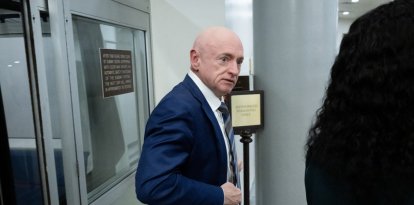House Republicans seek to reform the National Institute of Health to avoid mistakes made during the pandemic
The Committee on Energy and Commerce, led by Rep. Cathy Anne Rodgers, takes aim at "gain-of-function" research.

(Cordon Press)
Republicans on the House Energy and Commerce Committee are seeking to limit the power of the National Institutes of Health (NIH) to avoid replicating mistakes made during the pandemic. Specifically, the proposal seeks to strip away authority over controversial "gain-of-function" research and freeze ongoing experiments until new procedures are established.
This type of research involves altering the function of an organism so that it develops more capabilities than it would normally have. The research's objective is to anticipate emerging infectious diseases and develop treatments, vaccines or therapies before they become widespread.
The Committee's proposal would transfer the NIH's current authority over this type of research to an " independent public oversight entity," which would have the ability to review, approve, reject, and otherwise supervise these experiments.
In turn, it would pause ongoing research until "appropriate guardrails to monitor research" are approved and prohibit the NIH from conducting or supporting gain-of-function research in countries designated as foreign adversaries, such as China.
"As with all taxpayer-funded federal agencies the NIH has a duty to responsibly manage resources. Both before the Covid-19 pandemic and increasingly since, the NIH has played a more visible role as the most important public health research agency the country. It is important to recognize the unique and personal opportunity costs at stake here, crucial knowledge, cures, and treatments are therefore permanently delayed or abandoned. It is in the public interest for the NIH to work efficiently, effectively, transparently and, above all, responsibly. Life depends on it," Rodgers said in an op-ed published in Stat.
"As Chairman of the Committee on Energy and Commerce (CMR) and Chairman of the Appropriations Subcommittee on Labor, Health and Human Services, and Education (RBA), we see that the only way to restore trust in the NIH is through structural and policy reform that is thoughtful, strategic, and transformative," she added.
Finally, the congresswoman's proposal would add additional oversight of the NIH, such as more regular reporting and term limits of up to five years for institute directors.
These security measures were proposed after the House Select Subcommittee on Coronavirus shone a spotlight on a senior advisor to Anthony Fauci who used a personal email address to avoid government oversight and had contacted the nonprofit EcoHealth Alliance, who conducted studies on bat coronaviruses in China.

























